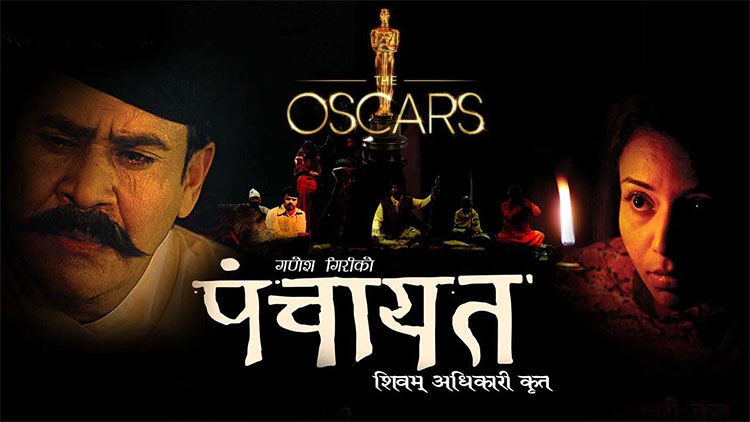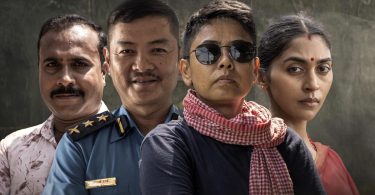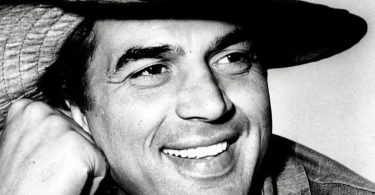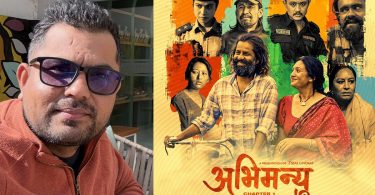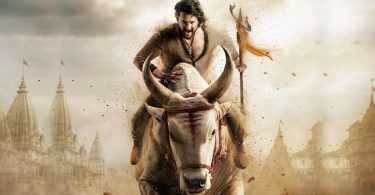Panchayat (पंचायत), Nepalese historical drama set in the Panchayat era to represent Nepal for the Academy Awards Foreign Language 91st Oscars race. The film was written and directed by Shivam Adhikari and produced by Sushanta Shrestha and Sankhar Shrestha under the banner Kalawati Films with Nepal-Flix and Hetauda Movies.
The film is based on panchayat system in Nepal and it is mainly aimed at women’s and the film is set in 1974. The film stars Neeta Dhungana in the lead role alongside with Saroj Khanal, Rupa Rana, Ganesh Giti, Jahanwi Basnet and Bishal Pahari.
Panchayat tells the story of the head of the village Panchayat (played by Saroj Khanal), the person in charge of the village’s administration, who is proven guilty of a crime he commits. The film revolves around this psychological turmoil that the head finds him in.
The film also tells the story of a girl from the 1970s who faces social taboos associated with menstruation. The film portrays the Chhaupadi (छौपडि) tradition in Nepal which prohibits Hindu women and girls from taking part in normal family activities while menstruating since it is considered “impure”.
The films were judged by a panel comprising Pradeep Kumar Upadhyay, Lakshmi Nath Sharma, Rajendra Shalav, Samipya Raj Timalsena, Lokendra Parajuli (Kapeel) and Chiranjivi Guragain.
Chiranjivi Guragain, the secretary of the Foreign Language Oscars Selection committee, said that it was rather ironic that even though the notice was made public months prior to the selection, only three entries were submitted as possible nominees to contend for the prestigious award.
“Most of the producers are well aware that their films won’t make the final cut,” Guragain told the Post, “A majority of mainstream cinemas released commercially do not match the level of storytelling and technical finesse that we seek. The screenplay happens to be rough, the continuity of the scenes and the transition and other rudimentary cinematic grammar is often ignored.”
“But we have to choose one anyway,” Guragain went on, “We’ve selected Panchayat this year. It is definitely better than the other two submissions.” Director of Panchayat, Shivam Adhikari, said that he was assured from the get-go that Panchayat would do good.
“What I wanted to tell with Panchayat was a story that every Nepali needed to know. The collective conscience of that period was seldom explored in cinema and would make a good story,” Adhikari said adding, “Our mainstream cinema is flooded with formulaic films and I wanted to do something better. Panchayat might not do well commercially, as was the initial thought, but it will be received well critically. That’s how I convinced the producer.
“Panchayat might be a story from Nepal but the emotions it invokes are universal. I am sure that the judges will be moved by the story. And if that happens, we might just make history.”
Secretary of the selection committee, Guragain said, “though Panchayat is better than the other submissions, we really don’t have much hope that it will make into the final five. The best it can do is go through to the second round. We have suggested the producers to improve its sound design and other technical shortcomings before submitting it to the Academy.”
The film was selected out of three submissions, which included Samten Bhutia’s war drama Tandro and My Love Promise for Kathmandu. Last year’s entry, Deepak Rauniyar’s White Sun, was selected out of only two, the other being Nabin Awal’s sci-fi drama Bijuli Machine.
Nepal started sending its films to the Oscars since 1999 starting with Eric Valley’s Caravan. The film had made it into the final five of the contest and that is the only achievement Nepal has to boast so far.

